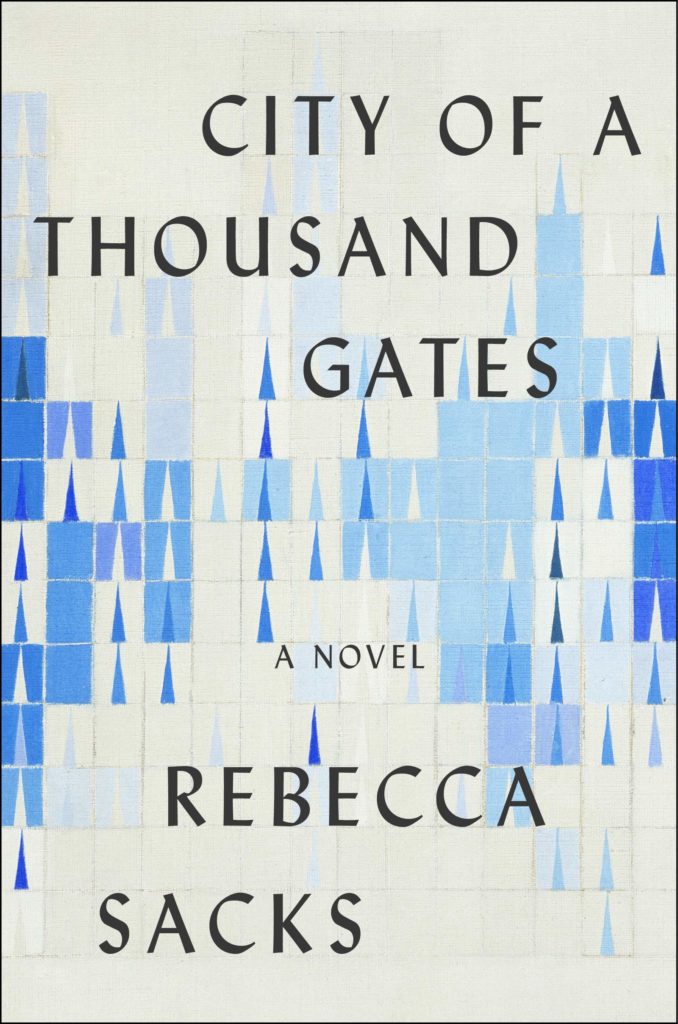
This amazing first novel is blanketed by a cloud of hopelessness that makes it impossible for its huge cast of characters—or for the reader—to take a long view of anything. And that’s as it should be, because this is a realistic novel set in Jerusalem, the West Bank, and the Israeli settlements in the present moment. Sacks’s ambition is to cram as many sides of the story as she can into 379 pages, and she succeeds spectacularly.
The plot centers on an explosion at the Tunnels Checkpoint outside Bethlehem. A number of our viewpoint characters are there, including: Mai, a young Palestinian woman studying at Bethlehem University; Ori, an Israeli soldier; and Vera, a German freelance photographer. Against her better judgment, Mai pulls a seriously injured Ori from the rubble, helps him to an Israeli ambulance, and then runs away. Unknown to her, Vera has photographed the iconic moment, which immediately goes viral with the caption, “This is what hope looks like.”
Of course the caption proves ironic. Mai immediately regrets her kindness and would take it back if she could (not least because most of her fellow Palestinians would happily murder her for it). Ori derides her, joking about her with his friends. Israel’s occupation of Palestine is not a problem that can be fixed by a futile gesture and a wishful slogan; even if the will to fix it existed.
Mai, Ori, and Vera are three of maybe two dozen viewpoint characters, all of whom we come to know intimately (and sometimes biblically). There’s a lot of sex in this book (most of it, interestingly, viewed in retrospect), tying into recurring themes of possession and the violation of boundaries. Who actually “owns” the West Bank? Why does one of the characters get such an erotic charge when her lover whispers “You’re mine” during sex? Time after time we see people penetrating borders and crossing lines, both cartographic and ethical.
On the first page we meet a vulnerable young Palestinian man in Israel, in the wrong place without the right papers. (Opening line: “Hamid is fucked.”) We see the naïveté of the Jewish-American woman raising her newborn daughter with her Israeli husband in Palestine. The isolation of the only Palestinian on an Israeli professional futbol team. The hopes and struggles of their mothers and fathers and siblings and friends. The texture of their daily lives, rendered in crystalline prose:
They drove down from the hospital campus, through the shuttered shops of the village, down past the Mount of Olives, past the unforgiving settlement block there, past the Israeli flag the size of a dump truck, past the silent graves like teeth in the moonlight.
If the novel is ultimately depressing, it is far from grim. Sacks is wonderful at capturing the many dialects of Jerusalem, and not above having a little fun with them:
He wrote down the antiquated Hebrew phrases he heard the [Holocaust] survivors use, the ones still struggling not to speak Yiddish. They spoke like Moses. “And I spake unto the taxi driver, saying, ‘Lo! Do you take me for a proletariat that you have tithed me thusly?’”
Other than a few instances where the tone strays from compassion into satire, like with the liberal US academic blind to her own racism, or Vera’s descent into self-loathing, the characters feel solid and real and motivated by everyday human concerns. Sacks’s love for them is palpable.
To say there are no easy answers here is an understatement. There are no answers at all, except maybe for this one: the best literature— like CITY OF A THOUSAND GATES—opens our hearts as well as our minds, lets us find our own reflections in those blanketing clouds.
